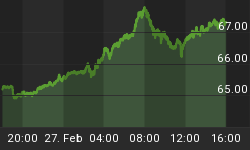From Israel, there is good news and bad news.
The good news - and it is huge - is that Israel will soon be awash in natural gas. Gas discovered on the country's outer continental shelf will turn the country from being hydrocarbon-deprived to being a net exporter.
Indeed, Israel is set to become so rich that it is laying the groundwork for creating a sovereign wealth fund for overseas investments in order to protect the country from inflation and the shekel from getting too strong.
The bad news is that with Hezbollah poised to control Lebanon's government, Iran has de facto arrived on Israel's northern border. Even without an Iranian nuclear weapon, this is a grave deterioration in Israel's security.
Already Lebanon has asked the United Nations to guarantee that Israel does not violate the integrity of Lebanon's outer continental shelf, where Iran plans to help Lebanon drill for gas.
Geology is about to change the political geography of the world's most combustible neighborhood.
The two huge gas discoveries are in the Tamar and Leviathan fields. Taken together, the gas reserves are estimated at 26 trillion cubic feet or 10 times larger than Britain's North Sea discoveries.
Since its creation in 1948, Israel has drilled on land for oil and gas with very little success. While the Arab Gulf countries have found and produced massive quantities of oil and gas, Israel has scrounged in the international markets for its hydrocarbons, including coal.
Israel's isolation made this difficult and expensive. In recent years, it has bought gas from Egypt. But Egypt will lose its good customer.
Turkey, once Israel's only Moslem friend - until the botched seizure of a humanitarian ship bound for blockaded Gaza - will be affected too. There were plans for a pipeline that would carry gas from Azerbaijan across Turkey and undersea to Israel. That economic boost will no longer be going to Turkey, but instead will probably go to Greece and Greek Cyprus. There have been preliminary discussions between Israel and Greece about shipping gas through Greece, by an undersea pipeline or a liquefied natural gas train, as an entry point into Europe.
Cyprus is a possible export-staging destination, as the Leviathan field, 86 miles off the Israeli coast, is nearby. But Turkish Cyprus, on the north side of the island, is not on board.
The Tamar field is 50 miles off the Israeli coast, and there are two smaller fields, potentially subject to claim by a free Gaza or a Palestinian state.
The gas will change Israel itself. Its defense force will have to defend the gas installations and the miles of pipes, pumps and other infrastructure. Israel has no domestic heating market, so all the new gas bounty will go to electric generation. The government hopes to make Israel the first 100-percent electric car country and the new gas will speed that transformation.
Credit for the Eastern Mediterranean gas discoveries goes to Houston-based Noble Energy. It is the technical leader in a consortium of Israeli companies. Now the world wants in before a whiff of the new gas has come onshore. The Gazprom, Russia's gas behemoth, is keen to have a piece as an investment and to protect its European markets.
The Israeli government expects an influx of U.S. and European companies to supply piping, pumps, controllers and construction equipment and materials.
It is not just private companies that are salivating: The Jerusalem government has just passed a law to tax gas profits at 62 percent.
Israel's hostile neighbors want in too. The Eastern Mediterranean is in play in an area where play is rough.
Source: http://oilprice.com/Energy/Natural-Gas/Israel-Set-To-Join-the-Rich-Countries-Club.html
By Llewellyn King for OilPrice.com. For more information on oil prices and other commodity related topics please visit www.oilprice.com















